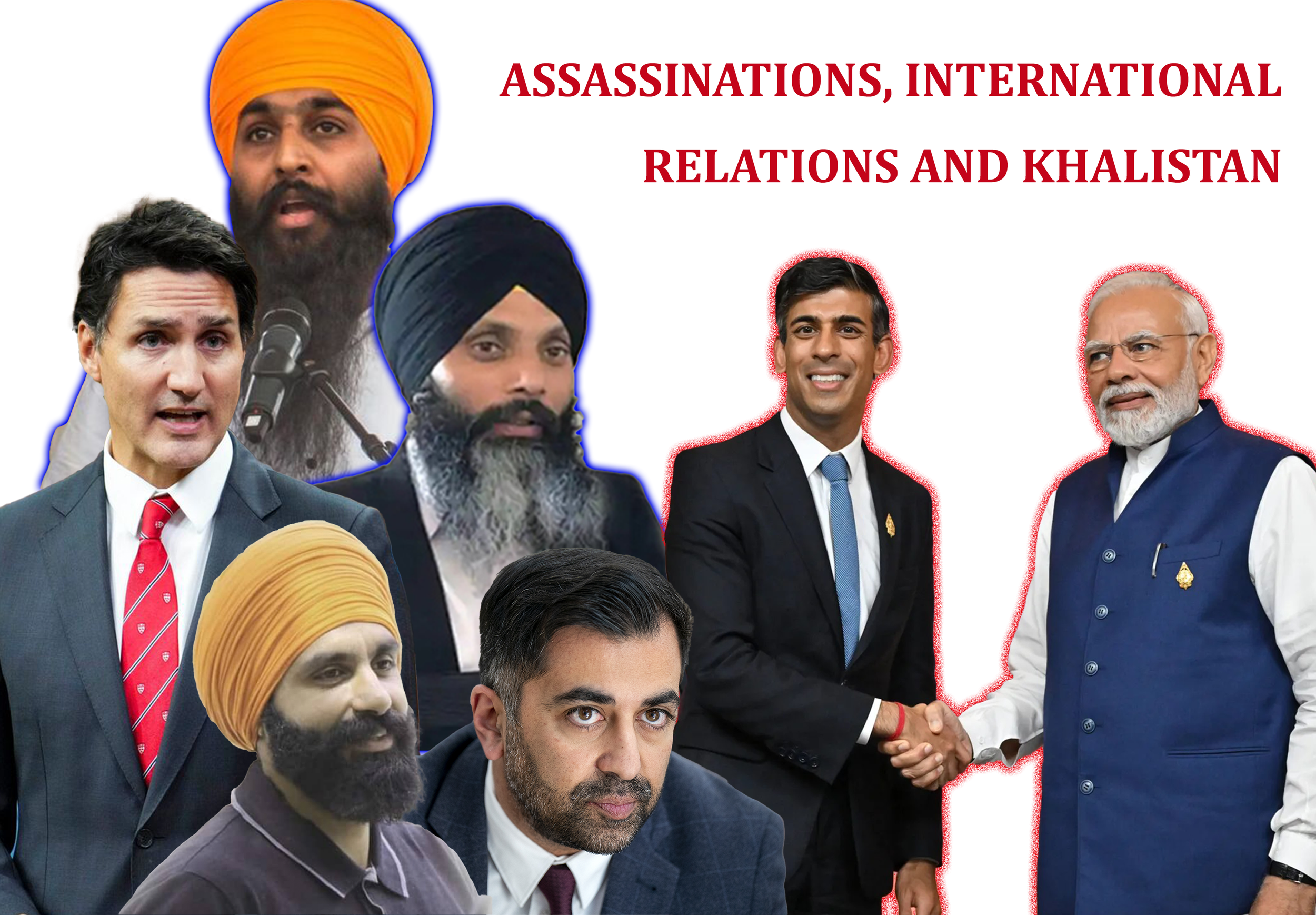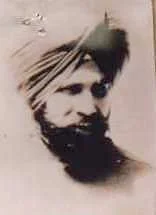Confronting Race and Rejecting the Politics of Apology
/“We were told that violence in itself is evil and that, whatever the case, it is unjustified morally. By what standard of morality can the violence used by a slave to break his chains be considered the same as the violence of a slave master?… Violence aimed at the recovery of human dignity and at equality cannot be judged by the same yardstick as violence aimed at maintenance of discrimination and oppression.”
-Walter Rodney, Groundings with my Brothers
Following the events of September 11, 2001, Sikhs across the Western world have been disproportionately marked as targets of violent hate crimes. As the US-led “War on Terror” inflicted the world with renewed imperialist intervention, racialized brown bodies would be increasingly marked as the legitimized targets of this war—particularly Sikh communities residing in North America and Europe. Throughout this period, various projects arose in response to this targeted violence. One of them, a t-shirt produced following the 2005 bombings in London, featured the racist message: “Don’t freak, I’m a Sikh.”
The message was clear in a world that had been divided into two camps by the famous American declaration: “Either you are with us, or you are with the terrorists.” Rather than challenging the Islamophobic racialization of brown bodies or the monopolization of violence by oppressive states, the creators of the t-shirt sought to submissively align Sikhs with Whiteness and the power of the West. By emulating the norms and practices of White bodies at the top of the racial hierarchy, many racialized individuals often hope that if they can perfect this mimicry, they may successfully escape further racial discrimination and violence. Sikh groups who seek to respond to Islamophobic violence by differentiating themselves from Muslims illustrate this perfectly.
Thirteen years later, this strategy is once again reappearing in Sikh circles. This time, however, it revolves around the racist media coverage of Sikhs themselves, and the claims of Sikh apologists in response.
Two claims are simultaneously put forth by these groups and individuals. Firstly, they “abhor violence” and claim that Sikh extremism is a phenomenon that only exists in the past. While implicitly accepting the branding of Sikh resistance as extremism, it is presented as an aberration that does not reflect “today’s” Sikh community. Rather than rejecting this racist characterization and seeking to place Sikh militancy in the context of genocide, they distance themselves from this reality altogether.
The apologists choose to project the Sikh jujharoo lehar (rebellion) as an anachronism of the past—an irrational (“extremist/terrorist”) outburst of violence that has no place in the liberal democratic “present” of their imaginations. They choose to latch on to a clear-cut division of time in order to banish Sikh existence and resistance into the realm of the “Other” in order to maintain their image as obedient, non-threatening citizens. Whereas the initial strategy was to differentiate a Sikh identity from the Muslim “Other” targeted in the War on Terror, it now moulds itself to differentiating a non-violent and non-threatening identity from an “extremist/terrorist” Sikh identity. Their new slogan becomes, “Don’t freak, I’m a (“moderate/peaceful”) Sikh.”
These groups seemingly have no problem with the racist establishment demonizing and criminalizing militant Sikh resistance to genocide, as long as they aren’t labelled and targeted with the same racist brush.
Flowing from this, is the second claim that Khalistan is no longer a relevant political issue. When they are forced to reconcile with its undeniable presence, however, it is reframed within norms acceptable to Whiteness ie. as a pacified non-violent social media campaign. One of the aspiring politicians quoted in the most recent article, reveals his ignorance by suggesting that the Khalistan movement “was a movement in the past tense. It’s been in the past tense for a couple decades now.”
The ignorance of these claims overlooks the legacy of genocide and the ongoing structures of repression which inhibit discourses of Sikh sovereignty from the political space in Punjab (52 Khalistani activists have been arrested in Punjab between April—December 2017 alone). Secondly, these claims ignore widespread political movements in recent years which centre around the movement for Khalistan. This includes massive mobilizations against the pending execution of Sikh political prisoners and for their immediate release—all of whom are in prison for waging an armed struggle against the Indian state in the pursuit of Khalistan. The symbolism and discourse underlying this movement clearly focussed on the necessity of the armed struggle these prisoners were imprisoned for.
More recently, the reconvening of the Sarbat Khalsa in 2015, the collective assembly of the global Sikh panth, not only ratified the 1986 resolutions to wage a struggle for independence by any means necessary, it also appointed Bhai Jagtar Singh Hawara as the Jathedar of Sri Akaal Takhat Sahib (a revered guerrilla commander). In addition to these modes of civil disobedience, this period has also seen the resurgence of several Khalistani guerrilla organizations and a significant spike in guerrilla strikes across India.
The ignorance and isolation of the apologists within their elitist silos, far removed from grassroots Panthic institutions and activism, speaks for itself.
Logically structured in exactly the same way as the the “don’t freak, I’m a Sikh” tees, these apologetic responses emanate from their lived reality of anxiety in a racist society and aspirations of an escape. By disavowing militant Sikh resistance as extremism, however, these responses accept and echo the attempt to relegate Sikh resistance as the barbaric “Other” while projecting an alternative sanitized image of a “Canadian Sikh.”
In the March 1925 edition of the Babbar Akali newspaper, anti-colonial Sikh revolutionaries made their positions clear in response to contemporary Sikh apologists disavowing the militant Babbar Akali movement in order to appease the British:
“We had reformed the enemies of the Panth and those who had deceived and harmed it. Our brothers were fighting a peaceful battle. We have fought battles as were fought by Sri Guru Hargobind Sahib and Guru Gobind Singh Ji. We have done nothing against the tenets of Sikhi.”
The Indian state declared war against the Sikh panth in 1984 and launched a genocidal campaign which Sikhs resisted en masse—mobilizing a range of strategies from civil disobedience to armed insurgency. From the Babbar Akalis to Khalistani jujharoo jathebandis (warrior bands), Sikhs have valiantly fought to defend our sovereignty from occupying forces and continue to do so. Those who are blessed with martyrdom in this struggle will continue to be venerated as shaheeds. As much as the apologists aspire to literally White wash Sikh existence and history to escape the harsh realities of racism, they will not erase our kaumi (collective) existence to do it.
Along with other oppressed peoples of the world, including Palestinians, Tamils, Kurds and countless others, the Sikh panth will not disavow our right to resistance, self-defence, or self-determination in order to win the affection of imperialist powers or White supremacy. Nor do we need the approval of foreign powers to authorize our armed struggle. This right was already bestowed upon us by Guru Gobind Singh Sahib when he blessed the Khalsa with patshahi (sovereignty) in both worlds.
ਚੁਕਾਰਅਜ਼ਹਮਹਹੀਲਤੇਦਰਗੁਜ਼ਸ਼ਤ॥ ਹਲਾਲਅਸਤੁਬੁਰਦਨਬਸ਼ਮਸ਼ੇਰਦਸਤ॥੨੨॥
When all other methods fail, it is righteous to take the sword in hand.
“On one hand, long grandiose speeches are made that India is a peace-loving country. Those who feel forced to resort to armed struggle in order to defend their rights are encouraged to engage in non-violent struggle instead. On the other hand however, it has been proven time and time again that those engaging in non-violent resistance will be consistently ignored or repressed by the establishment… Are the government and mainstream media not endorsing the belief that the only way to send a message through to the deaf ears of the state is through armed struggle?”
-Bhai Jagtar Singh Hawara, Jathedar Sri Akaal Takhat Sahib (2013)
Prabjot Singh - Sikh Liberation Front






